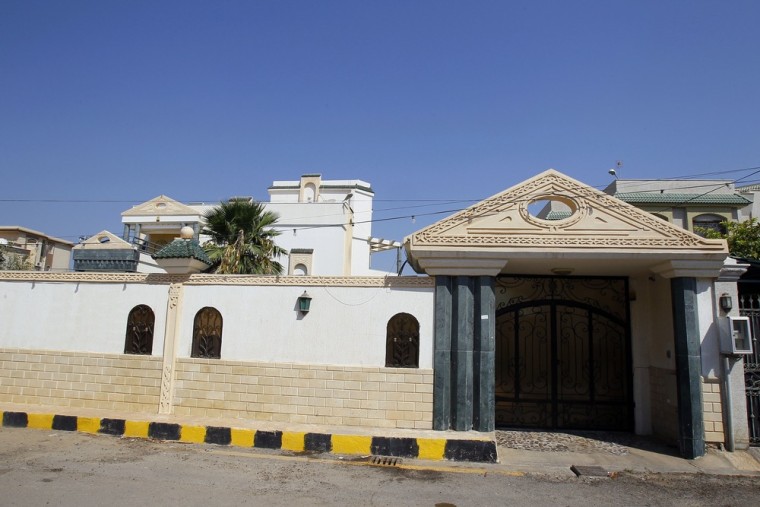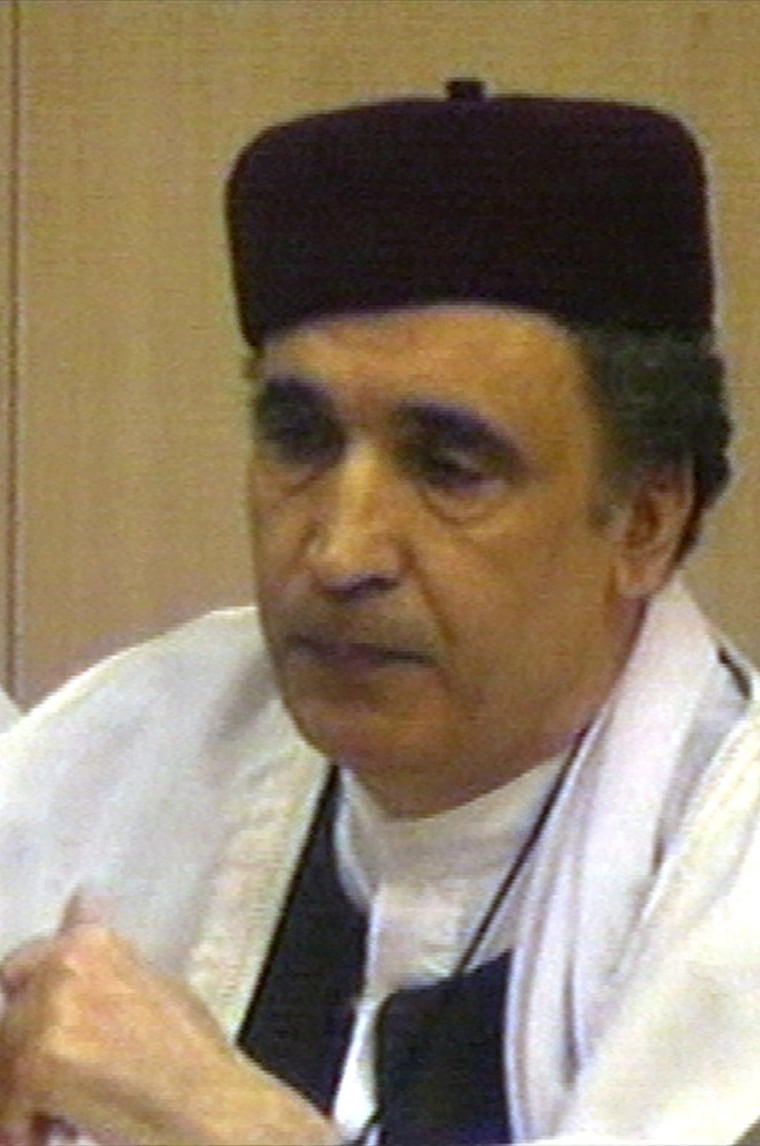The Libyan rebels' interim government says it will not deport the man convicted of the 1988 Lockerbie bombing, who is reportedly near death.
The rebel Justice Minister Mohammed al-Alagi told journalists in Tripoli Sunday that no Libyan citizen would be deported, even Abdel-Baset al-Megrahi, who was convicted in a Scottish court and imprisoned for the bombing of Pan Am flight 103, which killed 270 people.
The Scottish government released al-Megrahi in 2009, believing he would soon die of cancer. He was greeted as a hero in his native Libya and met with then-leader Moammar Gadhafi.
CNN reported Sunday that , under the care of his family at a villa in Tripoli.
"We just give him oxygen. Nobody gives us any advice," his son, Khaled Elmegarhi, told CNN.
It's likely that he'll take the secrets of the Pam Am bombing to his grave, according to CNN.
Neighbors of al-Megrahi described him as a wealthy recluse, constantly surrounded by security guards.
After his release, he was received with a hero's welcome on his return to Tripoli, and the televised images of cheering crowds angered many relatives of the 270 people killed in the attack, 189 of whom were Americans.
The Obama administration harshly criticized Scotland's decision to release Megrahi and many U.S. politicians and victims' families have pressed for his extradition to the United States.
One of Megrahi's neighbors said he had been whisked away by security guards last week when Tripoli fell to rebels battling forces loyal to Gadhafi, who like Megrahi, has gone into hiding. Libya's new government is likely to come under pressure to find Megrahi and hand him over.
"The day Tripoli fell, four security men, his private security, took him, his wife and his sons and left. They left in a Mercedes," said Ahmed Mlaaty, 20, a student and one of Megrahi's neighbours, standing outside his handsome villa.
As a condition of his release, Megrahi had been obliged to check in regularly with Scottish authorities, who said last week they had lost contact with him in the "dust of battle."

Neighbors said Megrahi, a former Libyan intelligence operative, owns several properties in the Demeshk area of Tripoli's Hadba district, one of the smartest in the city.
Megrahi's properties appeared empty, with a padlock on the gate of one residence where he was said to receive guests.
Sprays of bougainvillea, tall palm trees and brightly coloured flowers could be seen behind the high walls of the neighbourhood's large villas.
"He kept himself to himself .... He's a millionaire. He gets his money from big daddy (Gadhafi). People keep their distance. They don't want to get into state affairs as it will only bring trouble," Mlaaty said.
Another neighbor who had sat with Megrahi at local functions but had never spoken to him said he appeared a reserved, well-turned-out man.
Most neighbors said Megrahi appeared unwell, but there was controversy over his severity of his condition -- diagnosed by Scottish doctors as terminal prostate cancer -- and whether it warranted his release.
"I saw him many times, he was in a wheelchair, he looked very ill, very thin. He always had security, more than one car. He never went anywhere without them," said senior policeman Ali Ahmed al-Khudair, 40, who said he resented the security patrols that accompanied Megrahi's arrival in the neighbourhood.
"He wasn't a millionaire before, but he is now. He came here after he was released from prison. Then he bought these houses. This is one of Libya's top neighborhoods," he added.
Another neighbor said Megrahi caused no one any harm, and said his complicity in the bombing had not been proved.
"Everyone associates him with Lockerbie, but I'm not sure he was involved," said Noora Abdul Hadi, 27, a doctor.
Attiya al-Usta, 77, said he had seen Megrahi just before the February uprising against Gadhafi's 42-year-rule.
"When he came back from Europe he looked ill. But recently he looked fit and neat. I saw him just before the revolution. He didn't look ill at all. He was sitting in a chair on his balcony. He looked 100 percent."
